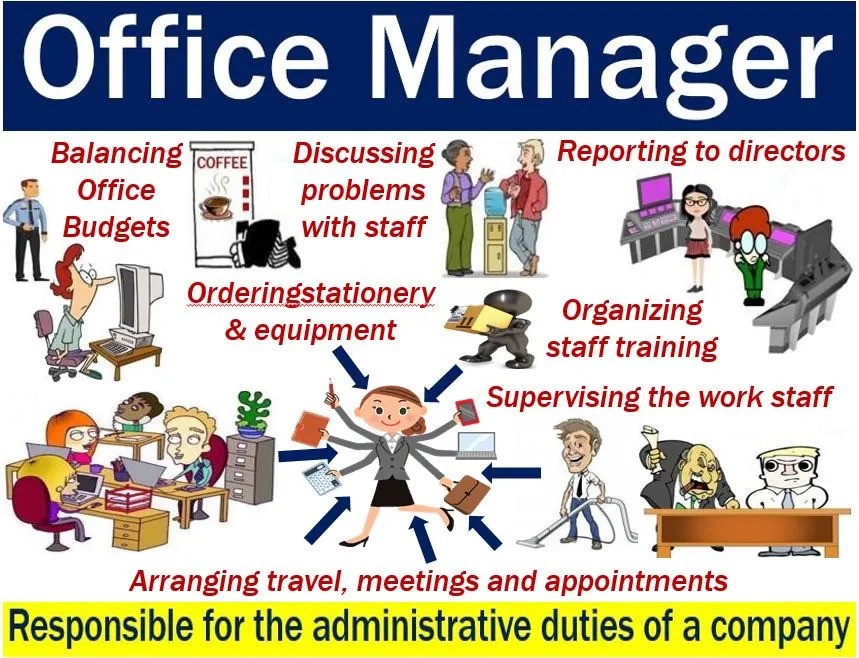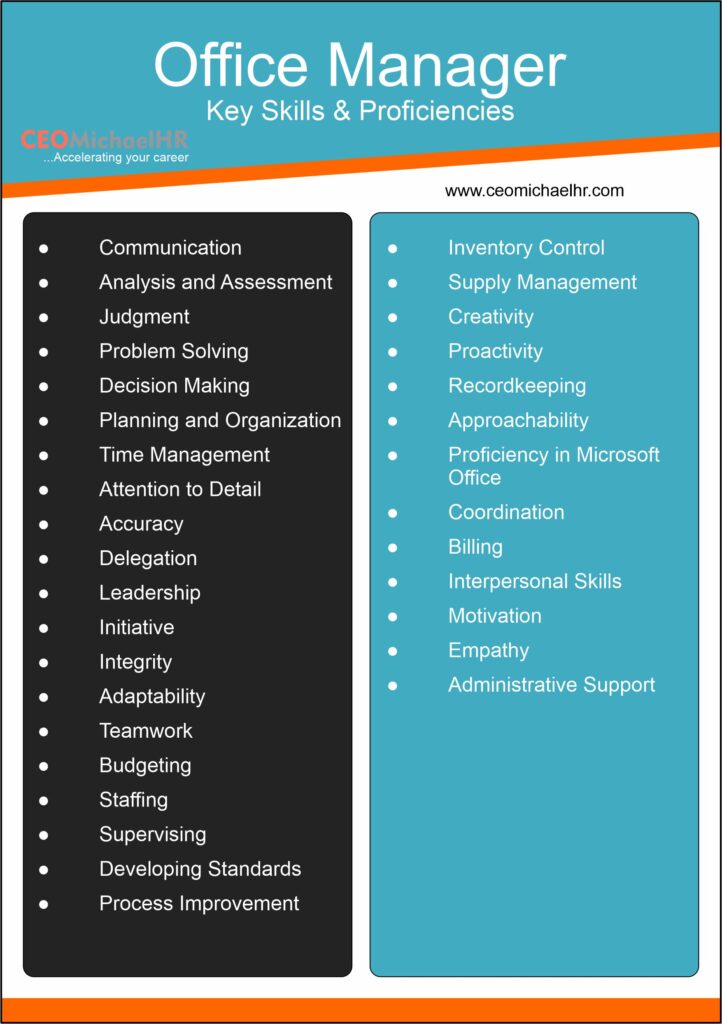
New clients, unlock 10% off all plans 🔥 at checkout with code: CEO10SPECIAL (Limited Time Offer)
New clients, unlock 10% off all plans 🔥 at checkout with code: CEO10SPECIAL (Limited Time Offer)






An office manager is a professional who executes administrative functions of a company or an organization.
This individual may be referred to as an administrative service manager or business office manager.
In simple term; a person who is in charge of running an office.
Part of the office manager job description include ensuring that the company’s or organization’s support staff are running properly and seamlessly.
Office managers are responsible for ensuring the smooth running of the office.
Office managers job description ranges from running an office including allocating physical resources such as supplies and office space, as well as scheduling internal events.
Office managers oversee operational staff such as administrative personnel, technicians, and accountants.
They are expected to organize and coordinate administrative roles and office procedures.
An Office Manager role is to create and maintain a conducive work environment aiming at high levels of organizational effectiveness, safety and effective communication.
Below is an infographic to explain further the job description of an office manager sourced from MBN market business news

An office manager is said to be good when he is more than just an efficient assistant.
It is important for an office manager to possess sound judgement, strong communication and problem-solving skills.
In most cases, because of the nature of their job, office managers are seen as leaders with enough patience to handle all aspects of their job.
You might like: How to Include A Minor on Your Resume
As a result of their good team spirit, Office Managers find it easy to relate with colleagues handling other job roles such as Administrative Assistants, Office Assistants, HR Assistants and Receptionists.
Business owners, directors and departmental heads generally receive reports from these dynamic office managers.
An office manager is highly experienced in the area of organizing, coordinating office administration and the procedures involved in order to guarantee company’s effectiveness, efficiency as well as safety.
Though the office manager is responsible for nurturing intra-office communication protocols, task delegation, office staff supervision, streamlining of administrative procedures and inventory control, a successful office manager is an enthusiastic professional who wouldn’t mind managing multiple offices under him or her.
Office managers are able to coordinate a wider range of administrative duties and executive support related tasks working single handedly with little or no supervision.
In fact, they are known to be well organized, flexible and stay motivated in facing administrative challenges of supporting an office with various people.
You might like: Should I Reapply for A Job That Was Reposted?

A well-tailored resume with skills section highlights all your relevant skills for an office manager position.
This will help your resume to match the applicant tracking system (ATS), which is the first move to get your application recognized.
Make use of these office manager job description top skills below to help you effectively create your stellar resume in a brace.
You might also like: The Predictive Index Test (All You Need to Know)

Do you wish to work as an office manager? If yes then we are here to help you get there.
Reach out to us at CEOMichaelHR where your tailored resume advances from hello to hired!
Share
Further Reading
*The names and logos of the companies referred to in this page are all trademarks of their respective holders. Unless specifically stated otherwise, such references are not intended to imply any affiliation or association with CEOMichaelHR.
Land interviews 3x faster while submitting fewer resumes
Copyright © 2025, ceomichaelhr.com.
All rights reserved.
Land interviews 3x faster while submitting fewer resumes
Copyright © 2025, ceomichaelhr.com.
All rights reserved.

Learn the same techniques our expert resume writers have used to get thousands of clients closer to their next job
Unlock expert resume tips, start landing multiple interviews!

Stay connected to receive powerful career insights, updates, and inspiration that’ll help you hit your career goals.